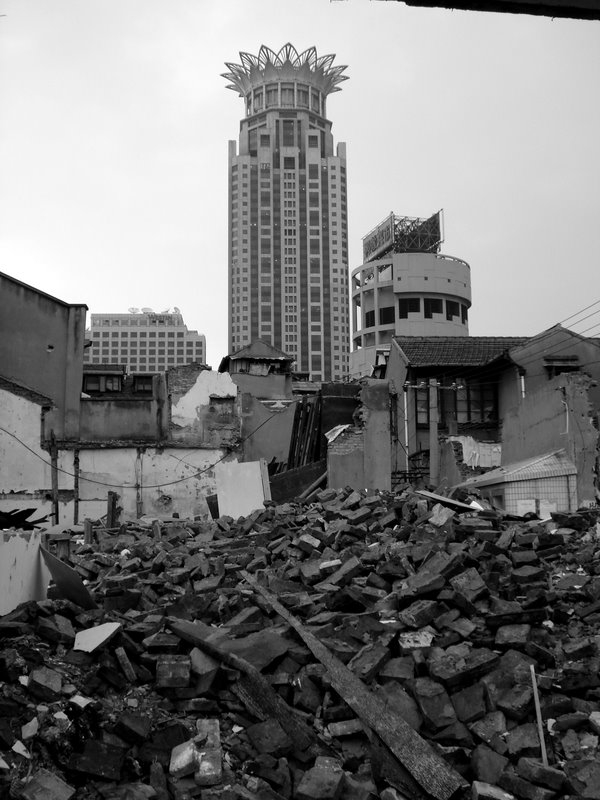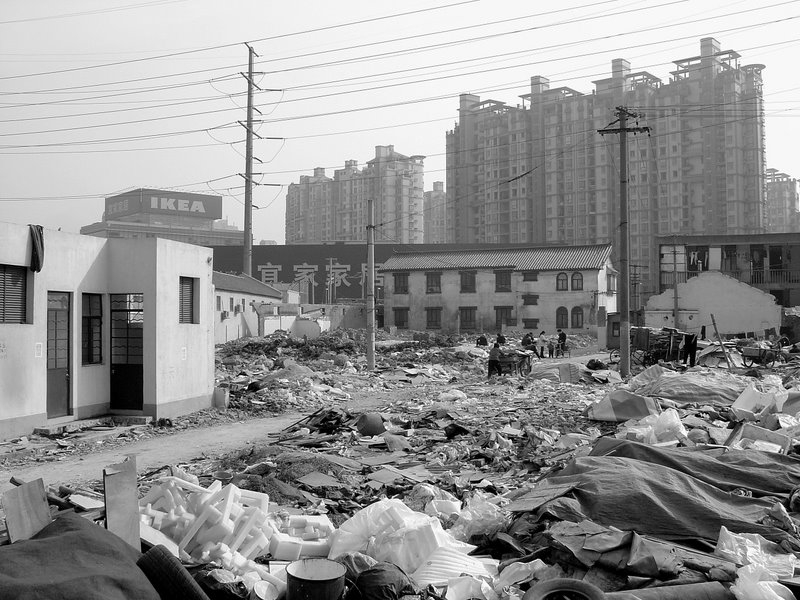

Time/disjunctures/to follow on destructuring…
Yes, indeed, I think that here you point to a key issue, constitutive of contemporary China: disjunctures. Temporal and spatial are indeed constitutive of the society.
I would say that disjunctures are constitutive of contemporary world since globalization and technology and modernity have increasingly brought together subjects that were previously spatially and temporally separated.
If I think here in urban terms – which are those I am most familiar with – we could say that this process is extremely visible in cities like Beijing, as disjunctures materialize (and are constituted) by changes in the built environment. Yet china has a particularly long history, that is continually brought on to nurture a national feeling, and changes have been so fast in the past 3 decades…that people can’t possibly cope with them…and produces many…leftovers. It is quite interesting to think that reforms have started 30 years ago already…which means that reforms time has been as long as M.a.o time…but again, time seems not to be the same, considered the events that shaped those different periods…
Once I read an interview of film maker Jia Zhangke 贾樟柯 and he said something very interesting : China is changing, but most importantly: china has changed already, and it’s time to stop and think about where we are. I found this extremely appealing because Chinese society has been on the move for such a long time and “hope/belief in a better future” has been carefully nurtured by Chinese leaders in order to carry on the reforms [no need to think about Deng who said that they first needed to create rich and then help the poor, or what was it again?] Yet, thinking about the future definitely hides the present, and I feel china is now at that particular turning point where people start realizing that life is in the present and future might not change anymore – at least, for them.
And again—encounters, how do people cope with those disjunctures? where do the disjunctures meet ?
Yourself are a product of such disjunctures, because of your family’s history, because of your own experiences and history…and here comes the link with the overseas project, at least in my understanding.
Again, in urban terms, this makes me think about Deljana, an architect doing a PhD in Tokyo but working on Shanghai…and she has been studying those disjunctures appearing in the time new buildings are being built and added to the old fabric…and she tries to understand how those urban disjunctures are lived by inhabitants, what are their rhythms, etc… very interesting.
And coming back on a few questions: how do people live/practice/perceive/produce disjunctures? Maybe here we have something to explore…

 时间 posted on: 31 January 2008 |
时间 posted on: 31 January 2008 |  发布者 author:
发布者 author: 
 分类 filed under:
分类 filed under: